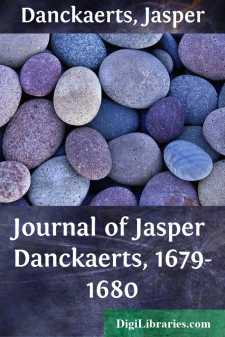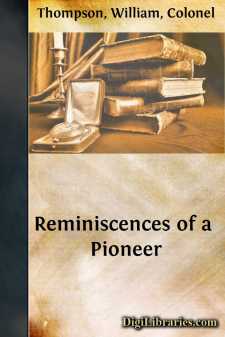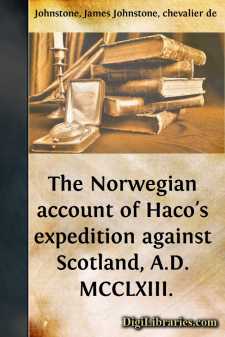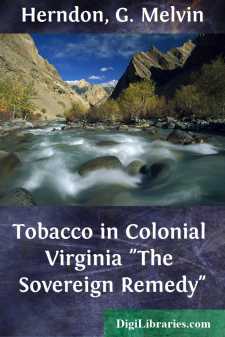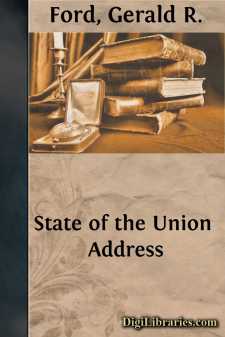History
- Africa 30
- Americas (North Central South West Indies) 50
- Ancient 68
- Asia 58
- Australia & New Zealand 8
- Canada 41
- Caribbean & West Indies 1
- Civilization 20
- Eastern Europe 12
- Europe 310
- Expeditions & Discoveries 60
- General 77
- Historical Geography 1
- Jewish 9
- Latin America 3
- Medieval 8
- Middle East 13
- Military 248
- Revolutionary 8
- Study & Teaching 5
- United States 353
- Western Europe 56
- World 13
History Books
Sort by:
I. THE ICE FOLK AND THE EARTH FOLK. The first Ohio stories are part of the common story of the wonderful Ice Age, when a frozen deluge pushed down from the north, and covered a vast part of the earth's surface with slowly moving glaciers. The traces that this age left in Ohio are much the same as it left elsewhere, and the signs that there were people here ten thousand years ago, when the glaciers...
more...
by:
Amy Carmichael
WHEN first "Things as they are" trod the untrodden way, it walked as a small child walks when for the first time it ventures forth upon young, uncertain feet. It has to walk; it does not know why: it only knows there is no choice about it. But there is an eager looking for an outstretched hand, and an instant gratefulness always, for even a finger. A whole hand given without reserve is something...
more...
INTRODUCTION In the year 1864 Mr. Henry C. Murphy, then corresponding secretary of the Long Island Historical Society, had the good fortune to find in an old book-store in Amsterdam a manuscript whose bearings upon the history of the middle group of American colonies made it, when translated and made accessible as a publication in the Memoirs of the Long Island Historical Society, an historical...
more...
by:
William Thompson
Chapter I. Farewell to the Old Southern Home. I have often wondered, when viewing a modern passenger coach, with its palace cars, its sleeping and dining cars, if those who cross the "Great American Desert," from the Mississippi to the Pacific in four days, realize the hardships, dangers and privations of the Argonauts of fifty-eight years ago. The "Plains" were then an unbroken...
more...
by:
Thomas Carlyle
Chapter I.—FRIEDRICH RESUMES HIS PEACEABLE PURSUITS. Friedrich's own Peace being made on such terms, his wish and hope was, that it might soon be followed by a general European one; that, the live-coal, which had kindled this War, being quenched, the War itself might go out. Silesia is his; farther interest in the Controversy, except that it would end itself in some fair manner, he has none....
more...
MCCXLIX. Alexander King of Scotland, wished much for possession of the Hebrides. He had often sent to Norway to redeem them with money, and he did so this summer. But when he could not purchase those territories of King Haco, he took other measures in hand, which were not princely. Collecting forces throughout all Scotland, he prepared for a voyage to the Hebrides, and determined to subdue those...
more...
by:
Edwin Benson
CHAPTER I INTRODUCTION In English history the fifteenth century is the last of the centuries that form the Middle Ages, which were preceded by the age of racial settlement and followed by that of the great Renaissance. Although the active beginnings of this new era are to be observed in the fifteenth century, yet this century belongs essentially to the Middle Ages. Perhaps the most attractive feature...
more...
"The Sovereign Remedy" Tobacco was probably first brought to the shores of England from Florida by Sir John Hawkins in 1565. Englishmen were growing it by the 1570's, and after the return of the daring Sir Francis Drake to England with a large quantity of tobacco captured in the West Indies in 1586, the use of tobacco in England was increased substantially. By 1604 its consumption had...
more...
by:
Gerald R. Ford
Mr. Speaker, Mr. Vice President, Members of the 94th Congress, and distinguished guests: Twenty-six years ago, a freshman Congressman, a young fellow with lots of idealism who was out to change the world, stood before Sam Rayburn in the well of the House and solemnly swore to the same oath that all of you took yesterday—an unforgettable experience, and I congratulate you all. Two days later, that...
more...
by:
Filson Young
DEGRADATION The first things seen by Francisco de Bobadilla when he entered the harbour of San Domingo on the morning of the 23rd of August 1500 were the bodies of several Spaniards, hanging from a gibbet near the water-side —a grim confirmation of what he had heard about the troubled state of the island. While he was waiting for the tide so that he might enter the harbour a boat put off from shore...
more...




